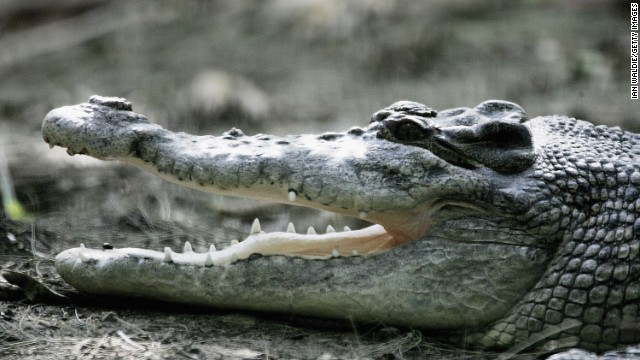Crocodile attack in Australia: Boy, 12, feared dead
January 27, 2014 -- Updated 1046 GMT (1846 HKT)

File photo of saltwater Crocodile, Australia's most dangerous predator.
Police officers and park
rangers have been using helicopters and boats to search an area around
Mudginberri in the Northern Territory's Kakadu National Park since
Sunday afternoon, when a saltwater crocodile attacked a group of five
children swimming in a water hole, police sergeant Stephen Constable
told CNN Monday.
One of the boys, aged 15,
was bitten by the animal but managed to escape. The crocodile then
turned on his friend, aged 12, Constable said.
"The 15-year-old boy was
grabbed on his right arm. He started fighting off the croc, and it took
him by the left arm; then it let him go and took hold of the 12-year-old
boy, and swam off with him."
There has been no sign of the child since the attack occurred.
"As time goes on, the chances of finding him alive diminish severely," Constable said Monday evening.
A crocodile expert who examined the first boy's wounds, believes the crocodile is between 2.5 to three meters long (around eight to nine feet), Constable said.
Search crews are also looking for larger crocodiles that may have attacked the one that took the 12-year-old.
"On occasion a smaller crocodile may take some food, and a bigger crocodile will take it off them," said Constable.
Authorities have issued shoot-to-kill orders for crocodiles longer than two meters which are spotted in the area.
Two crocodiles, 4.3 and
4.7 meters in length, were killed and cut open overnight, but their
stomachs did not contain any human remains.
According to local media reports,
people had been warned against swimming in the area after a teenager
survived an attack by a five-meter-long crocodile in the region in
January last year.
Constable said this time of year is particularly dangerous due to seasonal flooding.
Authorities will continue their search through the night, he added.
CNN's Pierre Meilhan contributed to this report.

No comments:
Post a Comment